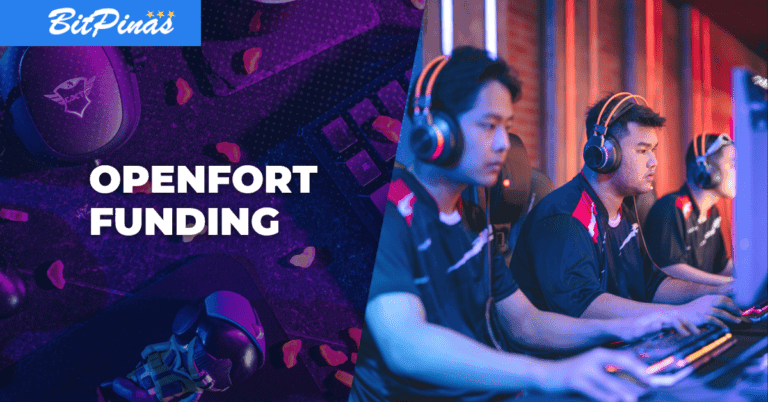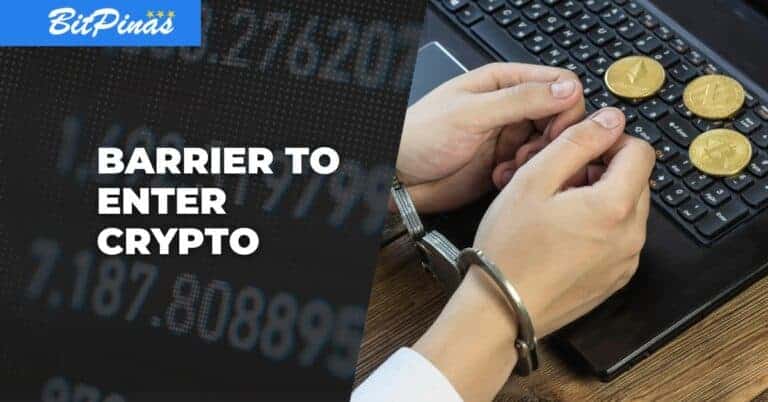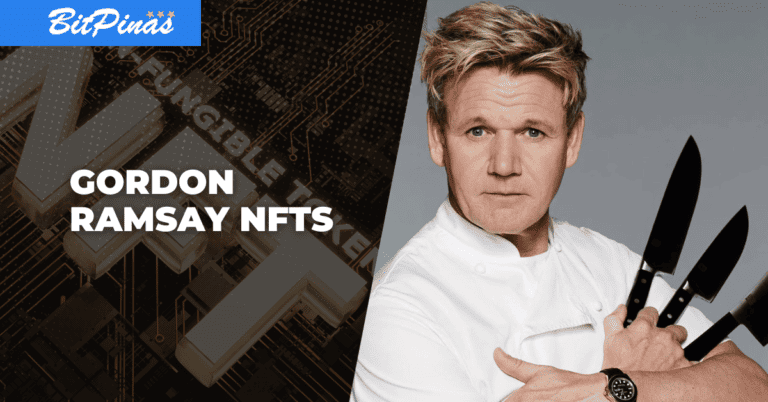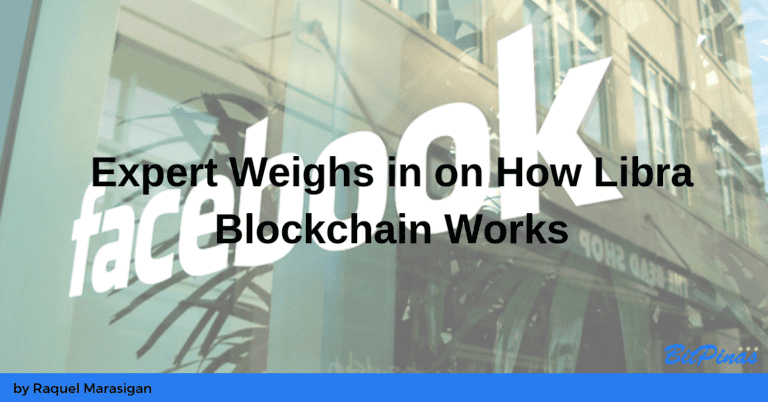Interview: How Trust Wallet Stands Out in the Competitive Crypto Wallet Market
Trust Wallet CEO Eowyn Chen discusses how the company has carved its own path amid fierce competition in the crypto wallet market.
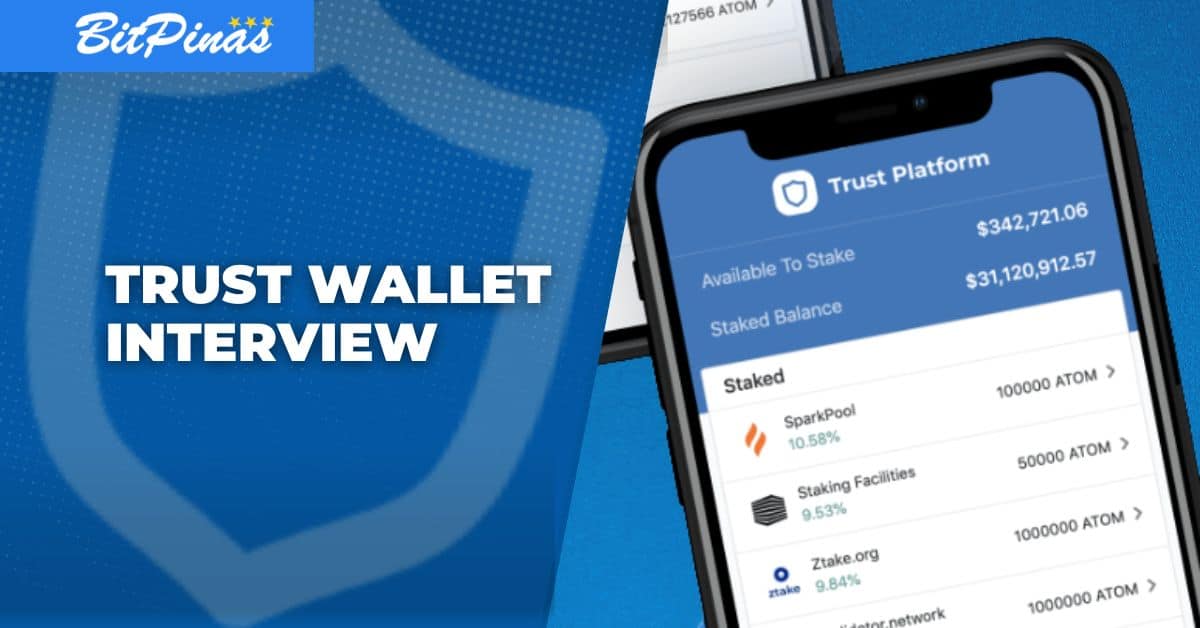
Editing by Nathaniel Cajuday
- Trust Wallet, under CEO Eowyn Chen’s leadership, is carving its own niche in the highly competitive crypto wallet market, focusing on user needs to inform its strategy and development.
- Despite the complexities of transitioning to supporting multi-chain, Trust Wallet also spearheaded an open-source project, Trust Wallet Core, encouraging other wallet developers to build on its infrastructure.
- Trust Wallet’s browser extension was born out of users’ demand for a new product format, which became a top 20 multi-chain browser wallet extension.
In navigating the evolving world of cryptocurrencies, a crypto wallet still remains the single most indispensable tool. Holding users’ funds and tokens and serving as the gateway to all things blockchain—from new cryptocurrencies to NFTs, game assets, and DeFi products, the competition in this segment is fierce.
Leading the pack in the non-custodial segment, where users maintain their private keys, is MetaMask, while Trezor and Ledger hold the fort in the hardware domain, offering physical products to secure users’ tokens. (Although Ledger might be out of the competition soon.)
Yet, amid this cut-throat competition, Trust Wallet carves its own path. In an exclusive interview with BitPinas, CEO Eowyn Chen unravels the company’s strategies to make its mark in this hyper-competitive crypto wallet market. The ethos driving Trust Wallet’s journey quickly becomes apparent—wherever the user ventures, Trust Wallet dutifully follows.

Wallet Beginnings
“Every product is born because of the context,” Chen begins, noting how the inception of Trust Wallet differed from other wallets.
While MetaMask first came out as a developer tool in 2016, the context of which is that it was still super early days in crypto, and MetaMask was the wallet to interact with the budding blockchain scene.
Trust Wallet, meanwhile, was born during the Initial Coin Offering (ICO) craze, when there was a coin for pretty much anything people could think of.
“So when Trust Wallet first started, our founder (Viktor Radchenko) wanted to have a wallet to hold all the coins together from the ICOs on the phone,” the CEO shared.
And that’s where the differentiation first lies—Trust Wallet was mobile-centric from the very beginning. (Chen did note that MetaMask does not deserve the criticisms for its UI because it was first and foremost a customizable developer tool to serve developers better.) And over the years, it has been the organization’s guiding mantra, Chen said, to focus on what the user needs to give the state of crypto development at any given period of time.
Pivot to Multi-chain
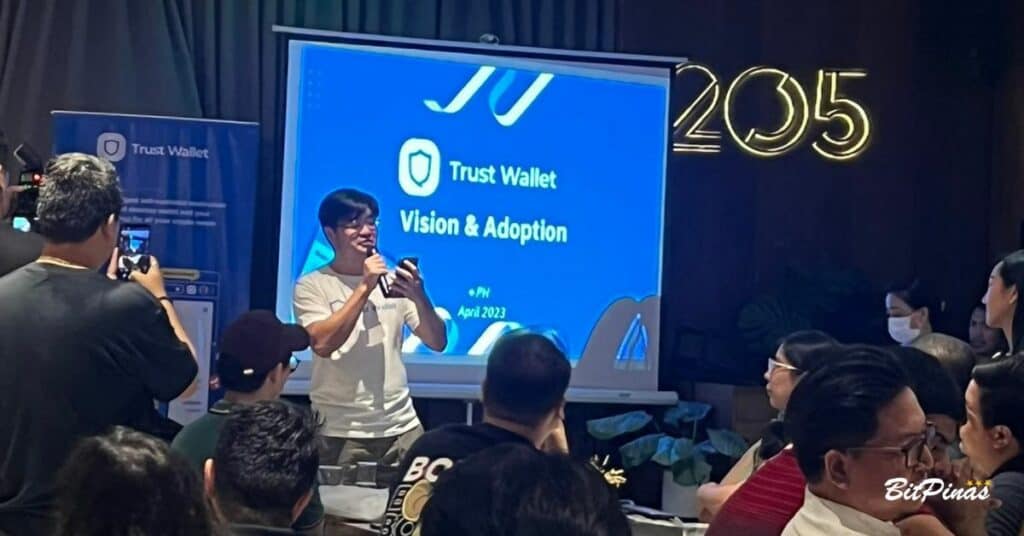
Trust Wallet’s responsiveness to user needs led it to pivot into becoming a multi-chain wallet by 2018, at a time when scalability was a key issue in the crypto space. (It was also in 2018 when Binance acquired Trust Wallet. Chen, a Harvard University graduate, held various roles at Binance from 2019 to 2022, and left the company to lead Trust Wallet as its CEO. Her most recent stint at the global crypto exchange was as its Global Vice President and Head of Central Marketing and Growth.)
Chen remarked that the team at that time was really a fan of Ethereum, “so if we’re just thinking about what we want, then we’ll continue to just keep supporting Ethereum.”
However, as per the CEO, the time came when users were already wanting different things, not just Ethereum support but all the other layer 1 blockchains:
“Users were starting to tell us that they wanted to be able to easily hold assets in the other layer 1 chains. That was the moment we started pivoting to multi-chain.”
The Harvard alumna then admitted that becoming multi-chain was challenging and totally a different world, as it took the team five years to complete the infrastructure underneath it.
This sentiment was echoed by Wei Zhou, the CEO of Coins.ph, in an interview with BitPinas:
“For example, Binance, you list a coin, they can get to 150,000,000 people, right? But the work to do to support a chain is the same. The work is the same. The work you do to listing to support like ZK or Optimism or Solana, the work is the same.”
This led Trust Wallet to an open-source project it is leading, the Trust Wallet Core. “Any wallet developers that want to build a mobile wallet or extension wallet can actually build on top of Wallet Core,” Chen said, noting that other prominent organizations like Crypto.com and Blockchain.com have built on top of their open-source projects.
Open-sourcing the project derived from the Trust Wallet founder’s belief that sharing knowledge is important because ultimately, a rising tide lifts all boats. Most importantly, “there’s no need to reinvent the wheel,” Chen shared, emphasizing that this will mean that even if there will be more competition for Trust Wallet, the eventual benefactors are the users themselves and the industry as a whole because it allows for experimentation from different angles, allowing the space to find the right solutions faster.
Going to the Browser
While many wallets began as browser extensions before going mobile (an example is the Ronin Wallet from Axie Infinity), it was the reverse for Trust Wallet, and its browser extension, just released in 2022, is a relatively new product for the company. Why go to the browser? The users again, Chen said.
“We have been very gung ho about just focusing on mobile but the users, again, wants this new kind of product format.”
The browser extension of Trust Wallet eventually became a top 20 browser wallet extension that is multi-chain, supporting not just Ethereum but even Solana and Aptos, among others.
“Now the users can navigate through the supported ecosystems. It is also a great tool for developers who want to deploy products on the multi-chain environment,” the CEO explained.
Going Global
With multi-chain support and the browser extension, along with the mobile app, Chen said it has led Trust Wallet to serve its users better, who, she revealed, are mostly from developing countries.
“These are not Twitter degens, these are normal day to day people wanting to have an easy access to crypto and they get blocked on fiat onramps and offramps all the time, or by risk controls and centralized exchanges for no good reasons, just because the infrastructure was not good. So we do way better when it comes down to serving the local markets,” Chen shared.
With users in mind, Chen said Trust Wallet has the most number of supported fiat currencies, helping move their assets off-chain.
Going back to my question on what separates her company from competitors, Chen argued that Trust Wallet has the fundamentals hammered down to its philosophy rather than chasing more fancy features that might complicate things for its users and current markets. And the CEO thinks it’s an approach worth taking:
“Creating that accessibility is again in line with what we think: If we’re user focused, sure there are a lot of fancy stuff to do, but there are a lot of important basic stuff to do as well on that route. So our team, comparing to a lot of other products, I think has the best coverage when it comes down to those very fundamental access points.”
This is part one of our interview with Trust Wallet CEO Eowyn Chen.
This article is published on BitPinas: Interview: How Trust Wallet Stands Out in the Competitive Crypto Wallet Market
Disclaimer: BitPinas articles and its external content are not financial advice. The team serves to deliver independent, unbiased news to provide information for Philippine-crypto and beyond.
